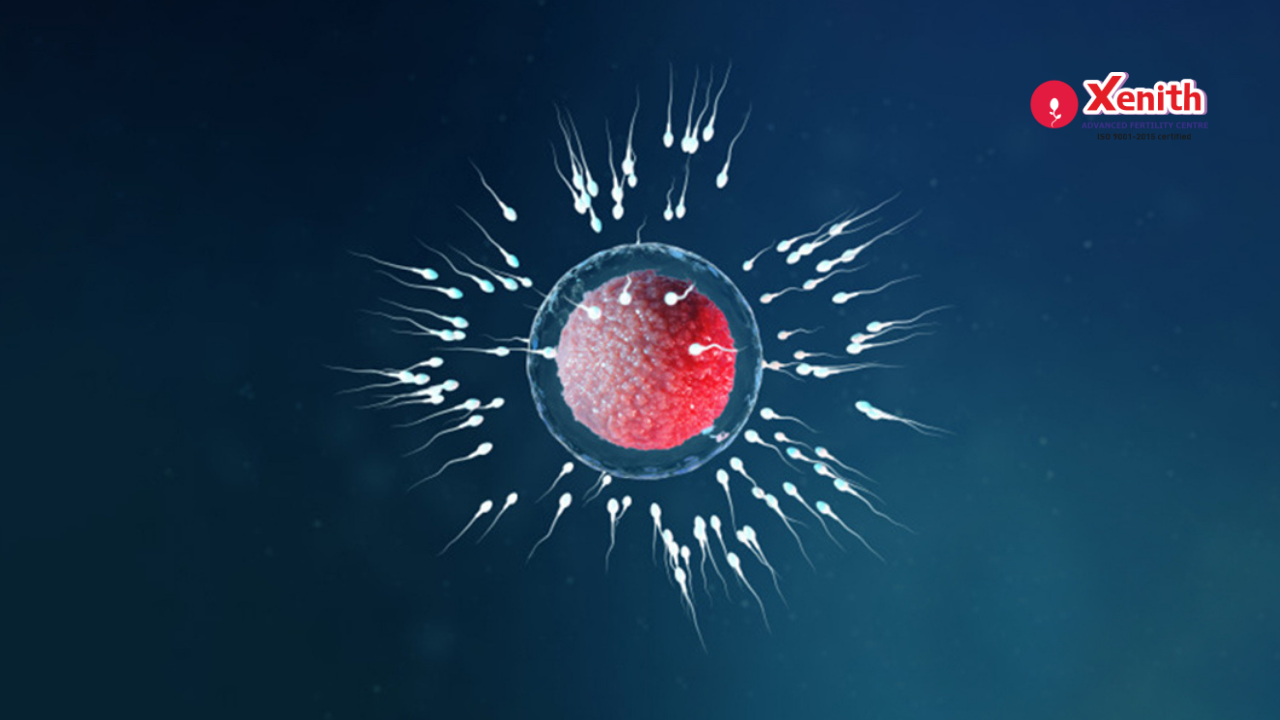It happens in 30% to 50% of the cases where couples have been actively trying to get pregnant and yet not able to succeed. Low sperm count is often the problem. The technical term for this is an odd-sounding word called oligospermia. Low sperm count is a condition when men do not have adequate quantity or quality of sperm to fertilize the egg.
What exactly is oligospermia or low sperm count?

Free Thursday Consultation
Book Your AppointmentA man’s reproductive system is responsible for making sperm. Sperm is produced in the testicles along with testosterone, a male hormone that controls the making, storing, and transporting of sermon. During ejaculation, sperm get mixed with fluid from the prostate and seminal vesicles to form semen. Semen travels through the urethra out of the penis and into the vaginal canal. Sperm then travel upwards into the uterus and further up into the fallopian tube of a woman where an egg may be waiting to be fertilized.
When fertilization happens successfully, the union of an egg with a sperm creates a zygote or a fertilized egg. The zygote begins as a single cell containing 23 chromosomes from the egg and 23 chromosomes from the sperm. In the days following fertilization, a zygote multiplies rapidly.
The fertility of a man is dependent on sperm count as well as the quality of sperm and its ability to be motile (capable of motion). Only a few thousand of the millions of sperms present in the semen reach the tube and the oocyte even when sperm counts are normal. Hence a low count can cause inadequate numbers of sperms reaching the tube for fertilization of the egg. Thus the process of fertilization is impeded when a man suffers from low sperm count.
What can cause low sperm count?
There could be many reasons why men have low sperm count. Some reasons are related to environmental factors, genes, as well as lifestyle habits. The reasons below are informative, but not exhaustive:
- Genetic disorder
- Physiological problems with the male reproductive system
- Hormone imbalance
- Certain medications
- Being overweight
- Stress
- Previous infections
- Varicocele ( engorged blood vessels around testes)
- Consumption of alcohol
- Cigarette smoking
- Overheating of testicles due to tight innerwear
- Idiopathic
- Consumption or exposure to toxins (hazardous work environment)
- Chronic illness or tumours that affect reproductive organs/functions
- Cancer treatments
Symptoms of Low Sperm Count
Men who have low sperm count may not be aware of it. Most men can engage in normal day-to-day activities without any tell-tale signs or symptoms of male infertility. Low sperm count usually becomes apparent when pregnancy does not happen and both partners undergo investigations to determine fertility.
Apart from an inability to conceive, men and their spouses may notice the following signs or symptoms that could indicate low sperm count. Ask yourself these questions:
- Do you have a healthy appetite for sex? Do you shun away from having sex and how often?
- Do you have problems achieving an erection?
- Do you have any lumps or swelling in the testicle area?
- Do you think you have abnormally less facial or body hair for a man?
A “yes” to any one of these questions, especially over a period of time could indicate that you need to consult your fertility specialist. If you suspect you may have this condition and would like to confirm the presence of adequate sperms in the semen, visit Xenith Advanced Fertility Clinic for a fertility test for men that includes a sperm analysis. An analysis is done under a microscope where sperm is counted and also checked for motility (movement) and morphology (shape). Sperm count is also referred to as sperm concentration – the number represents how many sperm can be found in one milliliter (ml) of sperm.
The important thing couples need to understand is that evaluation of the semen MUST be done by an Embryologist trained to pick up problems in the sperms. Incorrect assessment is common and leads to delay in diagnosis and treatment outcome.
If your semen analysis shows a low sperm count, we may ask you to undergo further investigations to determine the reason for your low sperm count. Xenith has an Andrology Clinic and one of the best success rates in Male factor infertility. Our team of Andrologists, Urologists and Embryologists provide accurate diagnosis and treatment related to Male infertility issues.
What is the treatment for low sperm count?
In today’s modern era, low sperm can be successfully treated. Here are some treatment options we might recommend but a more tailored-made approach will depend on your specific condition:
- Minor lifestyle changes
- Medication
- Surgery to resolve structural problems with the penis or testicles
- Intrauterine insemination (IUI) – if your sperm count is low or low quality, we may recommend this procedure to deposit sperm directly into the uterus
- Intracytoplasmic Sperm Injection (ICSI) is a procedure that is performed in an IVF lab. The egg is retrieved from the spouse and a selected sperm is injected into the egg. The fertilized egg is then allowed to multiply in a petri-dish for 3 to 5 days. This is then placed in a catheter and transferred to the uterus of the woman for implantation.
While having a low sperm count can decrease the odds that your sperm will fertilize your partner’s egg, there’s still hope. At Xenith Advanced Fertility Clinic, there are several treatments available to treat low sperm count leading to a successful pregnancy. Schedule an appointment and begin your journey to parenthood!





Comments are closed.